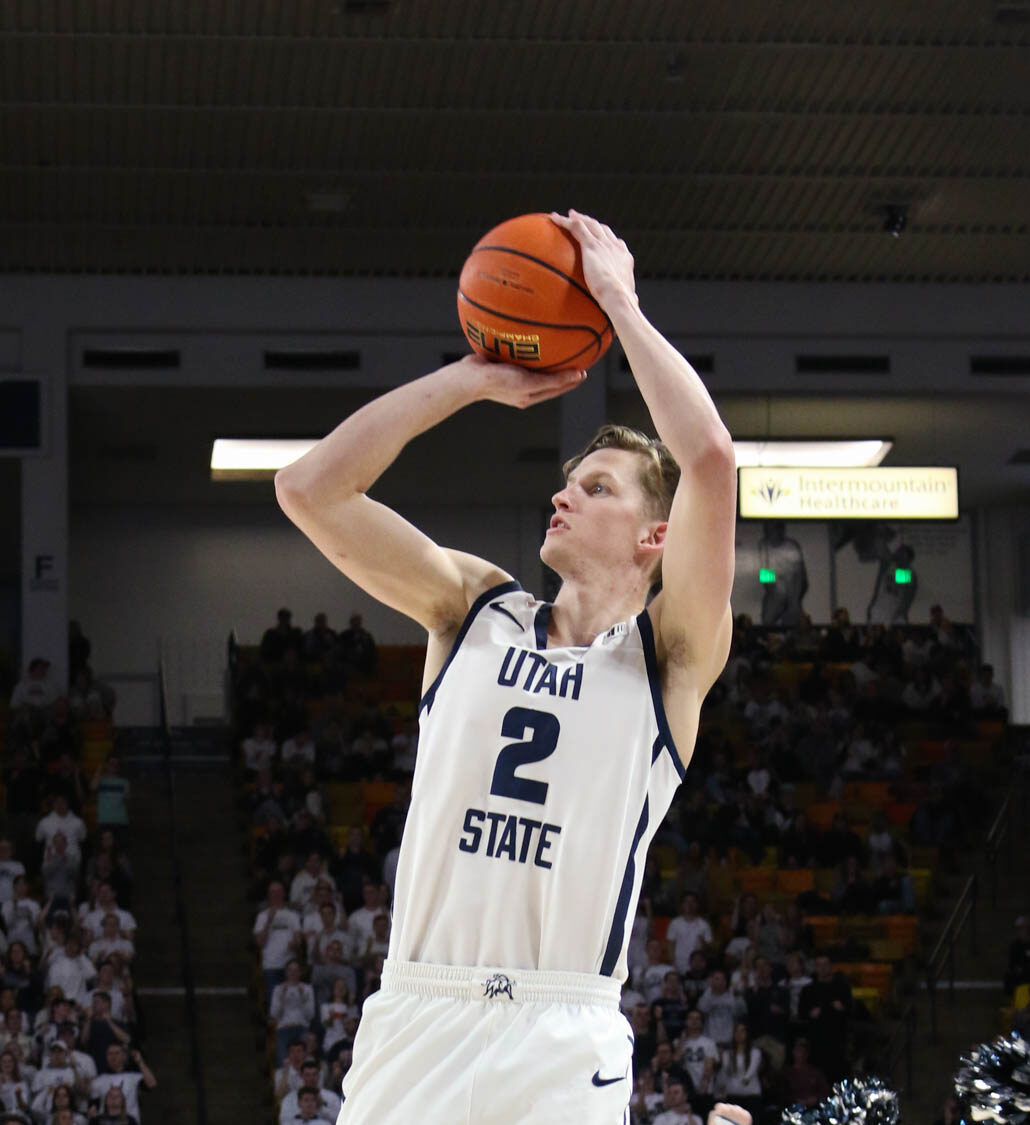International student-athletes can profit with Light It Blue Collective
On July 1, 2021, the NCAA approved a policy that allows student–athletes to be compensated for their name, image and likeness. The athletes that partake in NIL deals have the opportunity to make a profit by receiving free products or financial compensation.
The policy was a quasi-compromise in response to the question of if student–athletes should be paid. By passing the policy, the NCAA gives athletes an opportunity to earn money for their status as an athlete. They aren’t directly paying athletes, but they also aren’t limiting their opportunities to make money.
Many NCAA athletes around the country are marketing themselves in various ways, from striking up deals with local food restaurants to participating in t–shirt sales.
The men’s basketball team at Utah State has been in the spotlight since the beginning of November, as they have surpassed the 20–win mark and are on the bubble to make the NCAA Tournament. This has allowed American players Steven Ashworth, Taylor Funk, Isaac Johnson and Rylan Jones to take advantage of NIL opportunities.
However, the NIL opportunities are not being presented to all of the members of the team. International athletes are not able to make money through NIL because it goes against the rules of their student visas. Federal immigration laws prohibit off–campus work for international athletes, thus not allowing them to make money in American currency.
Sean Bairstow, a senior guard from Brisbane, Australia, has found a way to work around
those regulations. He currently has three NIL deals with Boneyard Barbering, Greek Streak 2 and Mountain West Motor. He isn’t getting any financial compensation, but instead can receive a free haircut, free food and a car to drive on game days.
However, his deals are limited, as companies don’t know how to work around the rules that pertain to a student visa.
“It’s confusing, honestly. You don’t know what you’re allowed to and not allowed to do, and it sort of cuts off opportunities,” Bairstow said. “You tell a business that you have these problems to work around, and it decreases the interest that they have just because there’s too much going on.”
Graduate student Dan Akin, a forward from London, England, has not been able to sign a deal. Akin has appeared in every game this season and is a critical player for USU’s offense, averaging 12.1 points per game. Even though he is integral to USU’s success, Akin doesn’t have any NIL deals and doesn’t understand how he can get them.
NIL deals have been prevalent in college athletics for over a year, and various universities across the country are figuring out loopholes for their intentional athletes, as many see the lack of compensation as unfair.
A new collective for NIL has recently surfaced for Utah State Athletics. The Light It Blue Collective, which launched on Feb. 22, is run by Student Athlete NIL, who oversees more than 20 different collectives for athletic programs across the country. The largest “employer” of student–athletes in the United States, they work with the community and beyond with the purpose of getting athletes NIL deals.
The funding for the collective doesn’t come from the university. It is funneled from donors,
members who are subscribed to the collective and businesses that want to work with student–athletes. The money donated can either go to all of the members of a team, or it can specifically be directed to one player.
Jason Belzer, CEO and co–founder, explained that Light It Blue is going to be successful in
creating NIL deals for athletes, whether they are international or not. The collective utilizes passive NIL to allow international athletes to make money in their home countries.
“International student–athletes aren’t allowed to work in the United States because of their visas,” Belzer said. “So to work with them, we sign them to contracts for their name, image and likeness to be used in their home country.”
There is an exception, though. Due to the current Russia–Ukraine war, Ukrainians cannot participate in these overseas deals. However, Light It Blue was able to work around these regulations and created a deal with Aggie guard Max Shulga, who is from Ukraine. A t–shirt was made, and the money from sales was donated to help Ukraine.
“NIL is anything the athlete wants it to be,” Belzer said. “It can be endorsements of businesses, commercials, advertising, trading cards and autographs. It’s anything and everything.”
Belzer explained that the connections Student Athlete NIL has in the country and in Europe make it feasible for every athlete on the basketball team to be able to participate in NIL if they want to. Although navigating the international player’s NIL deal is more difficult, Belzer said the lawyers and board members will find success for the athletes, just as they did for Shulga with the t–shirt sales.
“The Light It Blue Collective starting up will provide a lot more opportunities,” Bairstow said. “It’s their job to provide NIL opportunities and figure the legal stuff out. So, we kind of have someone working with us to help us figure it all out.”
Featured image by Paige Johnson from the Nevada home game.

